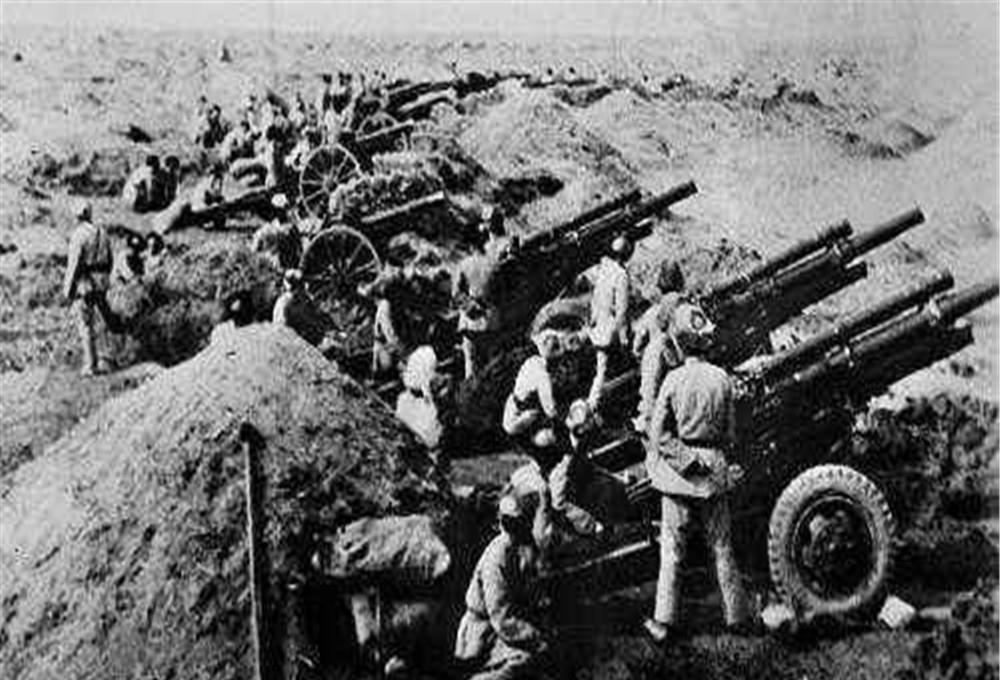After the end of the battles of The Three Lower Jiangnan and the Four Bao Linjiang Campaigns, a historic turning point took place in the northeast war situation; the total strength of the Northeast Democratic Coalition Army has reached 460,000, the enemy and our troops have been basically equal, and various arms of the Democratic United Army have also developed one after another, of which the artillery has expanded to 9 regiments, and the engineers and railway guards have become quite large. The Democratic Coalition moved from defense to counter-offensive.

Before launching the summer offensive, the economy of the Northeast Military Region reached the first among the major military regions, and its military strength also rose to the second, and the central authorities issued instructions in the hope of solving the problem of southern Manchuria in the summer and autumn, and attacking Rehe and Jidong in the winter and spring. The reason for this deployment is that only by capturing these two districts will we have a full grasp of the four cities of Changchun, Beining, Changshen, and Pingjin in the future, and that we will not only be able to solve the problem of northeast China, but also the problem of north China.
When the Battle of Wilder began in 1947, the enemy defended Wilder as a regular regiment and a security regiment, and the enemy built strong fortifications. Our army adopted the tactic of encircling points to attack reinforcements, first encircling Huaide, and then concentrating superior forces to eliminate the enemy's reinforcements, this strategy was very effective, eliminating the enemy's 90 regiment and Chiang Kai-shek's 71st Army.
Then the Northeast United Army launched a large-scale campaign from the west, east, and south, which lasted 50 days, eliminated 82,000 enemy troops, recovered 42 county towns, and completely smashed the enemy's conspiracy to divide and annihilate our northeast base areas.
In the early stage of the summer offensive, our army fought very smoothly, but in the later stage, it encountered resistance, and in the Siping Offensive, our army suffered huge losses, although our army fought heroically to annihilate 17,000 enemy troops, but it paid the price of 13,000 people.
Tan Zheng, director of the Political Department, attached great importance to the defeat in this campaign; he used three days to convene a meeting of the chiefs of staff of the column and the division headquarters, profoundly summed up the experience of this defeat, and the lessons learned through discussion and discovery by everyone were of great significance, not only successfully resolving the northeast problem, but also becoming a sharp weapon for liberating the whole country.
The main reason for this campaign is that the political consciousness of the officers and men is still relatively low, resulting in the fact that the combat effectiveness of the troops is not strong. In the 9th Company of the 20th Regiment of the 7th Division of the 3rd Column, a soldier named Fang Tianjing confided to everyone the hardships he suffered before joining the army, and many soldiers felt the same way, which aroused everyone's determination to learn tactics well, sharpen their knives to kill the enemy, and take revenge.
Tan Zheng realized the great educational effect of this method and began to sort out the campaign instructions for grievances, so that the whole army could carry out the grievances campaign. After a period of training, the political consciousness of the commanders and fighters increased rapidly, laying a solid foundation for the victory of the autumn offensive afterwards.
The unfolding of the grievance movement made the soldiers attribute their suffering to the Kuomintang, and those soldiers who had previously served as soldiers in the Kuomintang troops also realized that they had forgotten their roots and forgotten the suffering of their ancestors and parents, and decided that they must make meritorious contributions to killing the enemy on the battlefield. This kind of education enabled our army to quickly absorb prisoners of war and raise its ideological consciousness in a very short period of time, forming a powerful combat effectiveness, which was the basis for the rapid expansion of our army and also became a sharp weapon for maintaining the stability of the troops in the liberation of the whole country.